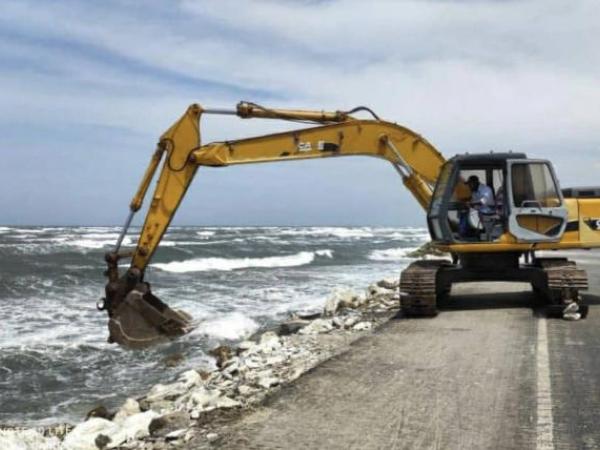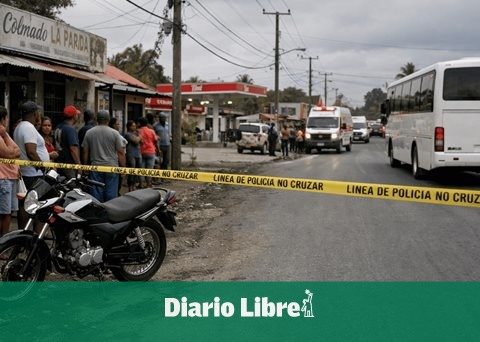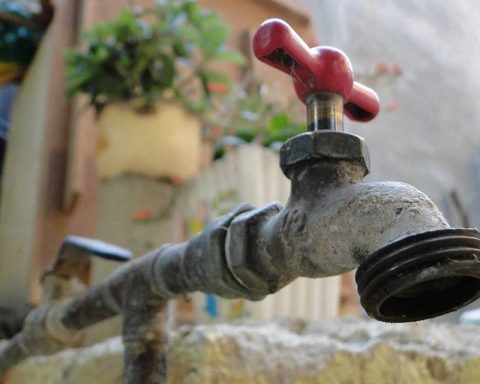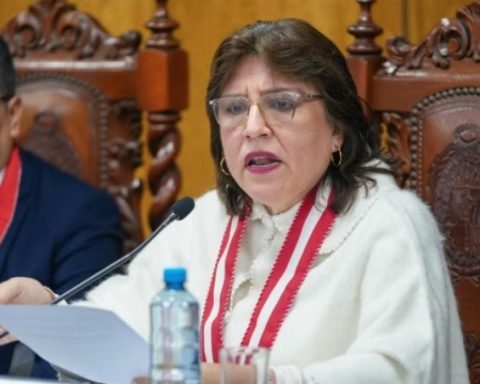
The Government of Sebastián Piñera, through the Undersecretariat of Fisheries and Aquaculture (Subpesca), dependent on the Ministry of Economy, analyzes allowing the companies Corpesca and Camanchaca to operate in the reserve zone for artisanal fishing, despite a failure in against the Supreme Court of April.
After the recent issuance of a technical report by the aforementioned undersecretary, the local Zonal Fisheries Council had been summoned for Tuesday, January 11, to address the issue, after the fisheries filed an appeal to reverse the situation, but the meeting was canceled this Thursday.
“We totally disagree with this political maneuver,” said a fishing leader regarding the official procedure, which was also criticized by environmental organizations.
“For us, as Oceana, it is very worrying that two months after the Government leaves its functions, these types of decisions are being taken. What the Supreme Court pointed out is very clear and establishes that an authorization of an exceptional nature cannot be transformed in a permanent rule, “said César Astete, director of Oceana Chile’s fisheries campaign.
“If in this case the government considers that this should be a permanent rule, it should propose a legal modification, which it has not done so far,” he concluded.
Supreme ruling
In April 2021, the Supreme Court had annulled the resolution of the Undersecretariat of Fisheries of September 12, 2019, which allowed industrial fishing to enter the artisanal reserve area and extract Spanish sardines and anchovies off the coasts of Arica and Iquique.
It was a historic ruling that put an end to a “privilege” –according to the ruling– that lasted for more than 25 continuous years, and that was established in favor of only two industrial fishing companies: Corpesca, belonging to the Angelini group, and Camanchaca, from the businessmen Jorge Fernández and Francisco Cifuentes.
The sentence was the product of a long judicial process that began in 2017. That year, an artisanal fisherman from Arica, Sergio Guarache Farías, filed an appeal for protection before the Valparaíso Court of Appeals, which challenged Exempt Resolution No. 323 of 2017, for being – in his opinion – arbitrary and illegal.
For the fisherman, the regulations that allowed the maneuvers of industrial fishing contravened the General Law of Fishing and Aquaculture and, in particular, Article 47 of said legal body, which establishes a reserve of five maritime miles for artisanal fishing. However, a ruling by the Valparaíso Court of Appeals agreed with the industrialists.
Still, Guarache and his eponymous son did not give up. Not even when they had to confront not only the two aforementioned companies, but the North Great Fishing Association of Shipowners and Industrialists (Asipnor), which, in addition to Corpesca and Camanchaca, includes the Peruvian firm Fimar.
Father and son finally managed to prevail in the Supreme Court. It maintained that “every privilege offends equality before the law guaranteed in Article 19 No. 2 of the Political Constitution of the Republic, with the addition that –in practice– the respondent (Subpesca) has left without application for a long time and excessive period of time a permanent legal norm, being able to infer, therefore, that by an administrative means it is being repealed or, at least, promoting the disuse of the law, an interpretation that of course cannot be tolerated, since it contradicts the noted precautionary principle in environmental matters, explicitly recognized by articles 1 B and 1 C of Law No. 18,882 ”.
The ruling sparked outrage among industrialists. And own Financial Journal reported, after it, that “the government will seek to replace the exception that allowed large fishing companies to extract resources in the area for more than 30 years.”
Technical report
Despite this setback, Corpesca and Camanchaca did not give up. This is attested by the technical report “R. PESQ. N ° 199/2021”, according to which on August 30 both companies insisted on maintaining their privileges.
Formally, the firms requested to authorize extractive fishing operations to vessels of holders of tradable fishing licenses or fishing authorizations in the regions of Arica and Parinacota and Tarapacá, with purse seine gear, on the anchovy and Spanish sardine resources.
The objective of the report is – according to it – to provide the background of the fishery, eventual impacts on the conservation of the resource, economic and social background and to analyze the request for entry to the Artisanal Fishing Reserve Area (ARPA) made by the users. The extraction request is for the period from March to July 2022, to 31 industrial vessels.
Fishing quota
Currently, Corpesca and Camanchaca own 67.4% and 16.8%, respectively, of the industrial quotas for anchovy and Spanish sardines, according to the report.
It also indicates that the application for entry to the ARPA refers only to the Arica and Parinacota Region, which forms a contiguous zone that represents between 70% and 90% of the total disembarkation of the North Macrozone between the years 2015-2020.
The report of the undersecretary even says verbatim that, according to what happened until 2019, after the industrial activity, “there is no impairment in the artisanal operation” and that it could be deduced that “there has been no interference between both fleets.”
After exposing the various antecedents, where among others the report indicates that the resource “is in a condition of underexploitation”, it concludes that the request entered by the industrial sector complies with what is required in the internal procedure established by the aforementioned undersecretary, although it considers It is important to complement the information regarding the impacts on ecosystems and biodiversity.
“It is recommended that, if the application object of this analysis is authorized, it be subject to the commitment to advance in the protocols to mitigate the incidental capture of birds and mammals in the northern zone,” concludes the report, which in such case also requests that the industrial fleet record the catch for the purposes of Sernapesca’s count.
Corpesca case
Astete highlighted the richness of the northern part of the country, with its high biodiversity, and expressed concern about the lack of protection for small-scale fisheries, the catch of which is destined exclusively for human consumption. It should be remembered that industrial fishing aims at the production of fish meal, intended for animal consumption.
“This type of procedure is striking because Congress, precisely based on motions such as the one presented by Deputy Camila Rojas, what it has sought is to gradually modify this procedure, and that a situation that is exceptional does not become permanent, because As the Supreme Court said, this truly constitutes a privilege, “he said.
It is not the first time that Corpesca is in the eye of the hurricane due to its relationship with political power. The firm was involved in a case involving political silvers, for which former UDI senator Jaime Orpis was convicted. As revealed in the process, the company paid him $ 200 million to defend his interests in Congress. Among others, Oripis filed an appeal in favor of the signature before the Comptroller’s Office for horse mackerel catch quotas and defended it during the processing of the questioned Fisheries Law, which extended the industrial quotas for twenty years.
The sentence was 5 years and 1 day in prison for six crimes of tax fraud and 600 days in prison for two crimes of bribery. For this case, the former deputy Marta Isasi Barbieri, the individual Raúl Lobos Torres and the Corpesca company were also sentenced.
The firm was sentenced to pay a fine, for tax benefit, of 10 thousand UTM (about 500 million pesos) and to publish an extract of the operative part of the sentence in a newspaper with national circulation.
















